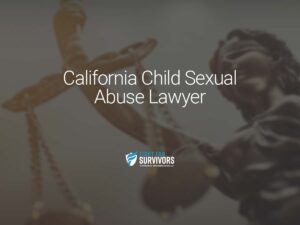
Understanding the Impact, Seeking Justice, and Supporting Survivors
Adult sexual assault is a deeply traumatic experience with lasting effects on survivors’ mental, physical, and emotional well-being. Whether it occurs as a singular event or part of a pattern of adult sexual abuse, it is critical to recognize the scope of this issue and provide resources and pathways for justice. This page delves into the nature of adult sexual assault, its far-reaching consequences, and the legal and emotional support available to survivors.
What is Adult Sexual Assault?
Adult sexual assault encompasses a range of non-consensual sexual acts, including unwanted sexual contact, sexual penetration, and sexual coercion. These acts are carried out against an individual without their explicit consent, often involving physical force or manipulation of the sexually assaulted. Survivors can include individuals of any gender identity, age, or background.
How Sexual Assault Occurs
Sexual assault occurs in a variety of settings, such as intimate relationships, workplaces, social gatherings, and public spaces. It can involve strangers, acquaintances, or trusted individuals such as family members or authority figures. Forms of adult sexual assault can include:
- Completed or attempted rape
- Unwanted sexual contact or sexual intercourse
- Sexual coercion
The dynamics of sexual assault often intersect with other forms of interpersonal violence, such as domestic violence and marital rape. These interconnected issues compound the trauma experienced by sexual assault victims and underscore the importance of comprehensive support systems.
Common Scenarios of Adult Sexual Assault
- Intimate Partner Violence: Sexual violence within intimate relationships often goes unreported due to emotional and financial dependencies. This can include marital rape, coerced sexual activity or other sexual behavior.
- Campus Sexual Assault: College women face elevated risks, with many incidents involving alcohol, drugs, or imbalanced power dynamics.
- Military Sexual Trauma: Reports of sexual violence within the military highlight a pervasive culture of silence and stigma, leaving survivors with significant mental health outcomes, including posttraumatic stress disorder.
- Workplace Sexual Harassment: Sexual harassment, including demands for sexual favors or unwanted sexual advances, can escalate to physical assault.
The Impact of Sexual Assault on Survivors
Survivors of adult sexual assault often endure profound consequences that extend beyond the immediate aftermath. These effects include physical symptoms, such as chronic pain, and mental health issues, such as panic attacks, difficulty concentrating, and psychiatric disorders.
Mental Health and Recovery After Sexual Violence
Sexual violence can lead to long-term mental health challenges, including posttraumatic stress disorder, anxiety, and depression. Survivors may also experience poor mental health and engage in health risk behaviors as a coping mechanism. Access to mental health care is crucial in facilitating recovery and fostering resilience.
Effects on Relationships and Daily Life
Sexual assault often strains interpersonal relationships, leading to feelings of isolation or mistrust. Survivors may avoid sexual activity or find it challenging to maintain healthy relationships due to lingering trauma.

Legal Protections for Survivors
The legal system offers pathways for justice, but navigating it can be intimidating for survivors. Filing a police report is often the first step in seeking accountability. However, fear of judgment or disbelief can deter many from taking action.
Statutory Protections and Laws
Recent legislative changes aim to provide stronger protections for survivors. For example, California’s AB 452 eliminates the statute of limitations for childhood sexual abuse claims beginning in 2024. While this law primarily addresses child sexual abuse, it reflects broader societal efforts to address sexual violence. Contact an attorney immediately to learn the specific deadlines that apply to your situation.
Advocating for Accountability
Legal support can guide survivors through the complexities of reporting incidents, pursuing civil or criminal cases, and holding perpetrators accountable. Resources such as the national crime victimization survey and the national center for victim advocacy play a pivotal role in understanding the prevalence and patterns of sexual and physical violence.
Support and Resources for Survivors
Survivors deserve compassionate support and access to resources that prioritize their recovery. Organizations specializing in sexual violence and violent victimization provide counseling, legal advocacy, and assistance with navigating systems like law enforcement and healthcare.
Healing and Empowerment
Seeking justice is only one part of the journey; emotional and psychological healing are equally important. Survivors who access support often report improved mental health outcomes and a greater sense of control over their lives.
Community and Peer Support
Peer networks and survivor-led organizations foster a sense of belonging and validation. Sharing sexual assault experiences within supportive environments can significantly reduce feelings of isolation and shame.
Taking Action
Every survivor’s experience is unique, and there is no one-size-fits-all approach to seeking justice or healing. Greenberg Gross LLP is dedicated to providing personalized legal strategies, compassionate support, and relentless advocacy to ensure that survivors’ voices are heard, and their rights protected. If you or a loved one has experienced sexual assault, reach out to our team today to begin the journey toward justice and recovery.
Frequently Asked Questions
What is the difference between sexual assault and sexual harassment?
Sexual assault involves physical acts such as unwanted sexual contact or penetration, while sexual harassment also includes non-physical actions like inappropriate comments or requests for sexual favors.
What should I do if I experience sexual assault?
If you were assaulted or sexually abused, prioritize your safety and seek immediate medical attention if necessary. Consider contacting law enforcement and a trusted legal team to discuss your options.
Can men experience sexual assault?
Yes, male victims experience sexual assault and sexual victimization as well, though societal stigma often leads to underreporting. Survivors of sexual assault can be any age, race, gender or sexual preference.
How does sexual assault affect mental health?
Survivors may face challenges such as depression, anxiety, and post-traumatic stress disorder. Access to mental health care is essential in addressing these symptoms.
What legal options are available for survivors?
Survivors can pursue both criminal charges and civil lawsuits. Consulting with a skilled attorney can help you determine the best course of action for your situation.
If you have additional questions or need support, Greenberg Gross LLP is here to help. Contact us to learn more about your legal rights and options.